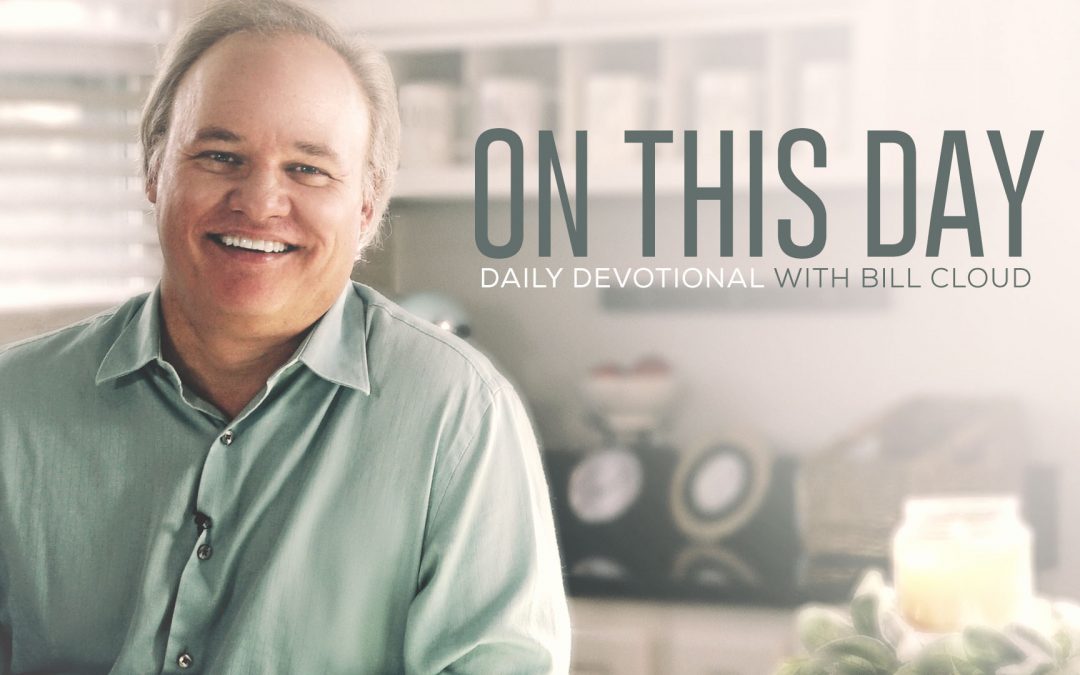Today is considered by Judaism to be the second day of Yom Teruah (a.k.a. Rosh Hashanah or “head of the year.”). And so on this day, the story of the akedah or “the binding” of Isaac, found in Genesis 22:9-10, is read in the synagogue.
“Then they came to the place of which God had told him. And Abraham built an altar there and placed the wood in order; and he bound Isaac his son and laid him on the altar, upon the wood. And Abraham stretched out his hand and took the knife to slay his son.”
The association between this story in Genesis 22 and Yom Teruah is derived from the tradition that the blowing of the shofar is a reminder of the horns of the ram that was caught in the thicket (Genesis 22:13). That particular ram became the sacrifice offered in the stead of Isaac, consequently providing a picture of the One who would lay down His life in the stead of others. Frankly, the entire story of “the binding” points to the Messiah and His suffering on our behalf.
According to Scripture, Isaac is the son of promise (Rom. 9:8-9) who was to be, in literal Hebrew, “lifted up” as a burnt offering (Gen. 22:2). The Bible records that Abraham took the wood for the sacrifice and placed it upon Isaac. However, the Hebrew word translated as “wood” literally means “tree” or “branch of a tree.” And so, as the promised ascends the mountain to be “lifted up,” his father places the branch of a tree upon him. It is then that he asks, “I see the wood, I see the fire, but where is the lamb for the burnt offering?” Abraham responds with, “My son, God will provide Himself, a lamb for the burnt offering.” Of course, Abraham wasn’t referring to just any lamb; he was referring to the Lamb of God.
It is only fitting that Yom Teruah and the themes associated with it, especially this particular story, should point us to Yeshua as our Redeemer, our deliverer, and the one who willingly lays down His life in the stead of another. The fact that on Yom Teruah we blow the shofar, the ram’s horn, speaks of the voice of innocent blood calling out to God’s people to return to Him. For us to be able to blow the ram’s horn, means that a ram had to surrender it, perhaps upon its death. In other words, for us to hear the sound of the shofar, an innocent ram had to be willing to shed its blood, in order that we might hear the call to repentance. Again, this hints of the Messiah who, though innocent, willingly gave up His life that we might hear the call to repentance, and have the opportunity to return to the Creator.
So today and every day, Messiah should be the focus of our being. Let us remember the commitment that was made and the cost that was paid that we might all be redeemed. The Son of promise allowed His Father to place a branch upon His shoulder that He might be lifted up and hung upon a tree that we might be grafted into His family tree. And so it seems fitting to close today’s thoughts with the words of John the Baptist who, upon seeing Messiah, said:
“Behold! The Lamb of God who takes away the sin of the world!” (John 1:29)
Shalom


I remember reading the story of the binding years ago and not seeing at that time the reference to Yeshua. I thank our Father for lifting the veil on my eyes and allowing me to see that he had this plan all along from the very beginning. His love has never waivered even from the beginning of Adam
Bill, I get to watch you and really enjoy your teaching, but also the whole program. I haven’t been able to get on my yahoo mail, because I don’t have a cell phone they can’t sent me a text for a past word. but I do have gmail. I enjoyed PAUL WILBER Shabbat and Monday night. I see another side of you now that I didn’t see before and I love this side of you. So humble not saying you wasn’t always this way. KEEP UP the good work that our HEAVENLY FATHER HAS GIVEN YOU.. JERI
God bless you Miss Jeri. BC
Hello Bill. I really appreciate these. Thanks for being committed to doing the work of God in this season. May the lord continue to unveil his truth to you. May those who need to know what God is saying and doing also hear God and come in contact with your work. Continue to be in tuned with God. May you be rewarded for your labor of love. God bless you.